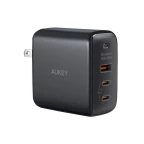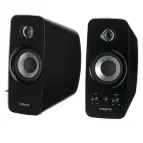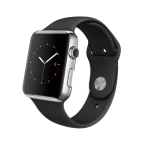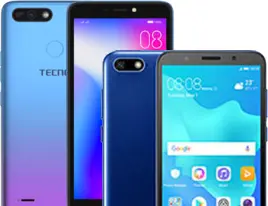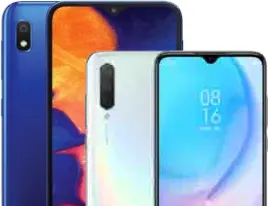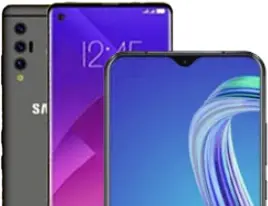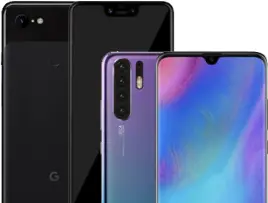

Samsung Galaxy S9 Plus
Specifications
- 6.2 inchesDisplay
- 6 GB RAM - CHINARAM
- 350013.48 mAhBattery
- 12 MPBack Camera
| General Features | |
|---|---|
| Release Date | 01 Feb 2018 |
| SIM Support | Single SIM (Nano-SIM) or Hybrid Dual SIM (Nano-SIM, dual stand-by) |
| Phone Dimensions | 6.22 x 2.91 x 0.33 in |
| Phone Weight | 189 g |
| Operating System | Android 8.0 (Oreo) |
| Display | |
|---|---|
| Screen Size | 6.2 inches |
| Screen Resolution | 1440 x 2960 pixels |
| Screen Type | Super AMOLED capacitive touchscreen, 16M colors |
| Screen Protection | Corning Gorilla Glass 5 |
| Memory | |
|---|---|
| Internal Memory | 64/128/256 GB |
| RAM | 6 GB RAM - China |
| Card Slot | microSD, up to 512 GB (uses SIM 2 slot) - dual SIM model only |
| Performance | |
|---|---|
| Processor | Octa-core (4x2.7 GHz Mongoose M3 & 4x1.8 GHz Cortex-A55) - EMEAOcta-core (4x2.8 GHz Kryo 385 Gold & 4x1.7 GHz Kryo 385 Silver) - USA/LATAM, China |
| GPU | Mali-G72 MP18 - EMEAAdreno 630 - USA/LATAM, China |
| Battery | |
|---|---|
| Type | Non-removable Li-Ion 3500 mAh battery (13.48 Wh) |
| Camera | |
|---|---|
| Front Camera | 8 MP |
| Front Flash Light | No |
| Front Video Recording | 1440p@30fps |
| Back Flash Light | Yes |
| Back Camera | 12 MP |
| Back Video Recording | 2160p@60fps, 1080p@240fps, 720p@960fps, HDR, dual-video rec. |
| Connectivity | |
|---|---|
| Bluetooth | Yes |
| 3G | Yes |
| 4G/LTE | Yes |
| Radio | FM radio (USA & Canada only) |
| WiFi | Yes |
| NFC | Yes |
Highlights
For those who’re well-accustomed with the Galaxy S series, they’d easily be able to recall the days of the Galaxy S2 when probably the world’s first power-packed smartphone came up to the podium. As years went by, the South Korean giants kept on cranking up a notch and we finally got to see Samsung releasing two Galaxy S variants with one being a larger and to some extent a more power-packed Galaxy S while its sibling would be the smaller sized variant.
At this moment in time, we here at PriceOye are more concerned with the bigger variant of the two, having done a comprehensive specs round-up of the Galaxy S9; we’re undoubtedly talking about the Galaxy S9+ which is poised to command a ransom-like launching price-tag of Rs. 130,000. While the Galaxy S8 and S8+ arguably proved to be the most exciting phones of 2017, it was extremely hard to see how the South Korean giants would improve upon them. They were nearly bezel-less, housed superb hardware that catered well for the demands of the built-in Android Nougat and as always, contained amazing cameras. Surprisingly, they missed-out on dual camera sensors.
The Galaxy S9+follows suit to its predecessor. By that, we mean that the smartphone performs excellently in all aspects but is missing one key element compared to the Galaxy S8+; something new. If you’ve read our round-up of the Galaxy S9’s features, this is something we’ve iterated again and again because we were disappointed to see Samsung doing with their flagships what Apple did theirs when it comes to the iPhone 7 and the iPhone 8; improved hardware, near-similar build and everything else is virtually the same. However, like is the case with Galaxy S9, we’re not in any way degrading the capabilities of the Galaxy S9+ in any fashion. It just lacks something that invention to it.
Premium build materials but gains some weight compared to the S8+
We’ll begin describing the Galaxy S9+ starting with its build quality and design; the smartphone almost completely inherits its looks, build materials and premium-ness from its predecessor, the Galaxy S8+, with almost nothing to choose between the two devices. The only difference between the two is the primary camera setup at its back panel; the S8+ had a sideways panel with a single camera sensor while the S9+ houses a dual-camera sensor in a vertical manner. That’s the only way to tell the difference between the two.
Another notable difference between the two Galaxies is the Galaxy S9+ featuring a slightly more curved back glass panel unlike the Galaxy S8. It’s exactly like what you’ve seen on Note devices like the Note 5 adding further premium-ness to an already premium smartphone. Dimensions wise, the S9+ gains a tad compared to its predecessor with an 8.5mm width while also weighing slightly more at 189g without any apparent reason.
Other than that, we’re witnessing IP68 certified dust and waterproofing while both the front and back panel see Corning Gorilla Glass 5 protection; exactly what the Galaxy S8+ offered.
An Infinity Display that’s second to none
Time to focus on the display department; as gorgeous as it gets, the Galaxy S9+ promising a display of the highest order was a foregone conclusion. The phablet features an 18.5:9 aspect ratio display, which Samsung likes to call an “Infinity Display”, like the Galaxy S8+, that almost stretches from the very top of the front panel to the very bottom. That means you won’t be getting any major redesigning with the S9+ which is another foregone conclusion with Samsung’s 2018 flagship.
Statistically, the display is a large 6.2 inches Super AMOLED capacitive touchscreen with 529ppi pixel density. Unsurprisingly that allows the display to muster-up a 1440p HD resolution that looks absolutely stunning and gorgeous. That has also been made possible by the Corning Gorilla Glass 5 coating atop it. The Always On characteristic of the display ensures that it never sleeps. Any worries related to the S9+’s should’ve been put to rest by now by the stats we just presented above; the display’s arguably the best in the world and it’ll heavily tip the large screen lovers in its favour because of proven its quantitative and qualitative prowess.
Finally the S series meets a dual primary camera sensor
The cameras department presents us with a rare opportunity to say that the Galaxy S9+ features something new compared to its predecessor. It was somewhat of a surprise that both the Galaxy S8/S8+9 completely missed out on a dual camera sensor but not this time as Samsung’s taken an Apple like approach; the bigger variant gets a dual camera setup while the smaller has to make do with just a single sensor.
That brings us to the S9+’s 12 + 12 MP dual primary sensor with superb camera features that includes dual-pixel PDAF, OIS and an LED flash amid numerous other customary features. That gives an already proven beast even more prominence in smartphone cameras. The selfie sensor stands at a respectable amount on 8 MP which ensures that the cameras department, although surprisingly not featuring dual primary sensor which has become a norm in flagships nowadays, fulfills your plate with lots of proven quality.
6GB RAM for all variants
The hardware department brings subtle differences between the Galaxy S9+ and the Galaxy S8+. Some of the improvements made by the S9 are not even significant to the common man like improvement in its GPU etc. and we’re sure they won’t do much to put a smile on the faces of tech-savvy users out there as well.
What really matters to the public is the smartphone featuring a powerful hybrid octa-core processor with variant dependent internal storage. 6 gigs RAM stands at a constant for all the variants which size-up at 64, 128 or 256GB which wasn’t the case with the S8+ which used to offer 4GB RAM for the 64GB internal storage variant and 6GB for the 128GB one with 256 gigs completely falling out of the picture. That results in uncompromising performance yet again which is something that’s becoming synonymous with many other Samsung phones out there in the market.
Other excellent features the S9+ inherits from its predecessor include a responsive, rear-mounted fingerprint scanner that no longer resides at the side of the dual primary sensor. It now resides underneath it which is a much better location in our opinion. Other noteworthy features to talk about are USB type-C, Quick Charge 2.0, region dependent Qi wireless charging, Bixby virtual assistant like Apple’s Siri and the now customary Samsung feature known as the Iris Scanner that gives you even more secure unlocking and other options.
The smartphone’s battery remains at 3500 mAh which classified as a beefy amount while the external memory card-slot can now accommodate memory up to 400 gigs compared to the 256 gigs offered by the Galaxy S8+. For now, the colour schemes of the S9+ include black, blue, grey and purple but we’re sure that you’re going to see newer additions to them as time goes by and Samsung looks for newer ways to keep the masses interested in the S9+.
Galaxy S9+ pros:
- Aesthetically pleasingly built with premium build materials
- A 1440p Infinity Display is one of its stand-put features
- Finally, an even more powerful dual camera sensor
- 6GB RAM
- All modern-day smartphone features
Galaxy S9+ cons:
- Something new, something new, something new!!





